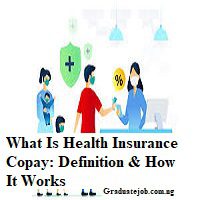Medical professionals often face large student loan debt due to the high education and training costs. Student loan consolidation options for medical professionals aim at easing the debt of medical professionals. Managing several loans with different interest rates and repayment terms can be difficult and time-consuming. Medical professionals can use student loan consolidation to simplify repayment procedures and potentially lower monthly payments.
This article will delve into six major consolidation alternatives available to medical professionals. Understanding these alternatives, ranging from federal loan consolidation programs to loan forgiveness programs can help healthcare providers make informed decisions about managing their student loan debt.
READ MORE: Student Loan Forgiveness for Veterans
Income-driven repayment plans
Income-driven repayment schemes let borrowers manage their student loan payments based on their income and family size. These plans might be especially useful for medical professionals with a large amount of school debt compared to their income. In this section, we will look into income-driven repayment programs designed exclusively for medical professionals and the eligibility conditions for these plans.
1. REPAYE (Revised Pay As You Earn)
REPAYE is under the Student loan consolidation options for medical professionals and is an income-driven repayment plan limiting monthly loan payments to 10% of your discretionary income. It also provides a 50% interest rebate on unpaid interest for Direct Subsidized Loans for medical professionals. REPAYE eligibility is not dependent on financial necessity, making it available to all borrowers with qualified loans.
2. Pay As You Earn (PAYE)
Another income-driven repayment plan, PAYE limits monthly payments to 10% of discretionary income. You must prove financial necessity and have taken out your first Direct Loan on or after October 1, 2007, to be eligible for PAYE. Borrowers with a high debt-to-income ratio are more likely to profit from this plan.
3. Income-Based Repayment (IBR)
Based on when you borrowed, and your financial need, IBR sets your monthly payments at 10% or 15% of discretionary income. Medical professionals with high debt and low salaries may be eligible for this plan.
4. Income-Contingent Repayment (ICR)
ICR calculates each month’s payment based on 20% of your net income or the amount you would pay on a fixed repayment plan over 12 years, adjusted for income. This option is available to medical professionals who have Parent PLUS loans.
READ MORE: How Much Student Loan Can I Get In Wales
Loan forgiveness programs
Loan forgiveness programs can be a huge help to medical professionals who are drowning in student loan debt. These programs allow participants to have a portion or all of their loans forgiven in exchange for meeting specified criteria. Let’s look at various loan forgiveness programs designed exclusively for medical professionals and their eligibility requirements.
1. Public service loan forgiveness
PSLF is a government program that forgives the remaining debt on eligible federal loans after making 120 qualifying payments while working full-time for a qualifying employer. Many medical professionals, such as those working for nonprofit institutions or government agencies, may meet the PSLF standards.
2. National Health Service Corps (NHSC) loans repayment Program
The NHSC program assists medical professionals who work in underprivileged areas with debt payback. Participants receive loan repayment help in exchange for a commitment to serve in an NHSC-approved site for a set amount of time. The field of practice, geography, and job status all play a role in determining eligibility.
3. State loan repayment plans
Various states offer debt repayment programs to attract medical professionals to neglected areas or certain specialties. These programs offer loan repayment aid in exchange for a promise to practice in specified regions or address specific workforce requirements. Eligibility requirements differ depending on the state and program.
4. Military loan forgiveness: Medical professionals who serve in the military, such as the Army, Navy, or Air Force, may be eligible for loan forgiveness or repaying aid programs tailored to their branch. Because each branch has its own set of criteria and perks, it is critical to investigate and comprehend the requirements.
Student loan consolidation options for medical professionals: Refinancing options
Loan refinancing is an alternative to student loan consolidation options for medical professionals. It allows health professionals to consolidate their college loans by receiving a new loan from a private lender to pay down their old loans. This kind of consolidation may provide various advantages.
1. Lower Interest Rates: By refinancing, medical professionals can obtain a new loan with a lower interest rate, potentially saving them money over the life of the loan.
2. Medical professionals can streamline their repayment procedure by merging many loans into one and making a single monthly payment.
3. Flexible Repayment Terms: Refinancing allows medical professionals to choose new repayment terms more suitable for their financial circumstances. They can choose between a shorter payback time to pay off their loans faster and a longer repayment period to lower their monthly payments. Lower monthly payments from refinancing can improve cash flow for medical professionals, allowing them to allocate more dollars to other financial goals or commitments.
However, before refinancing, Medical practitioners should consider the possibility of losing federal loan perks like income-driven repayment plans or loan forgiveness programs. Creditworthiness, repayment conditions, and any potential fees or costs related to refinancing should also be considered. To establish if refinancing is the best consolidation choice, compare offers from multiple lenders and carefully evaluate the terms and benefits.
READ MORE: Student Loan Forgiveness Programs For Healthcare Professionals
Factors to consider when exploring consolidation options
When considering consolidation alternatives, medical professionals should take the following factors in mind:
1. Status of resident or fellowship: Medical practitioners enrolled in resident or fellowship programs may face particular financial challenges. During this time, it’s critical to understand how consolidation options may affect their eligibility for income-driven repayment plans or loan forgiveness programs.
2. Loan forgiveness eligibility: If medical professionals seek loan forgiveness through programs like PSLF or NHSC, consolidating their loans may allow them to restart eligible payments. Analyzing how consolidation may affect eligibility for these key forgiveness programs is critical.
3. Interest rate considerations: Medical professionals should compare their present loan interest rates to potential consolidation offers before consolidating. It is critical to ensure that the new interest rate results in overall savings and does not overshadow the advantages of other repayment choices.
4. Creditworthiness and financial goals: When deciding on consolidation choices, factors such as creditworthiness, personal financial goals, and the ability to make consistent monthly payments should lead the decision-making process.
5. Loss of federal loan benefits: Consolidating federal loans into private consolidation loans may result in losing federal loan benefits such as income-driven repayment plans, loan forgiveness programs, or deferral alternatives. Before deciding, it is critical to comprehend the trade-offs and consider the long-term repercussions.
Final thoughts on Student loan consolidation options for medical professionals
Medical professionals should carefully examine their unique circumstances, consult with financial consultants, and properly research the implications of consolidation possibilities to make informed decisions that correspond with their financial goals and loan repayment methods.






